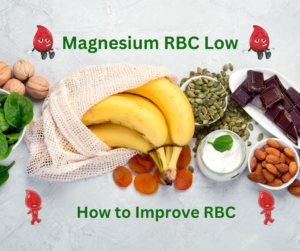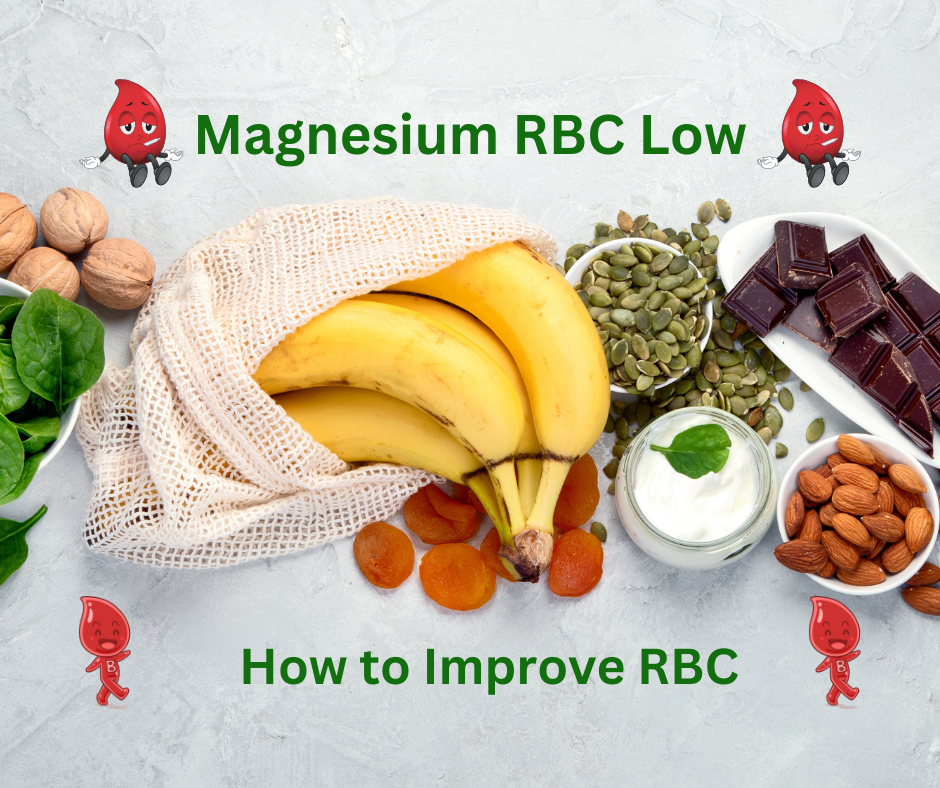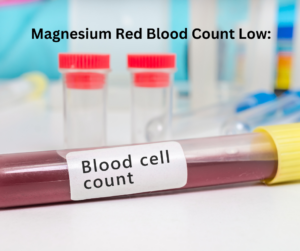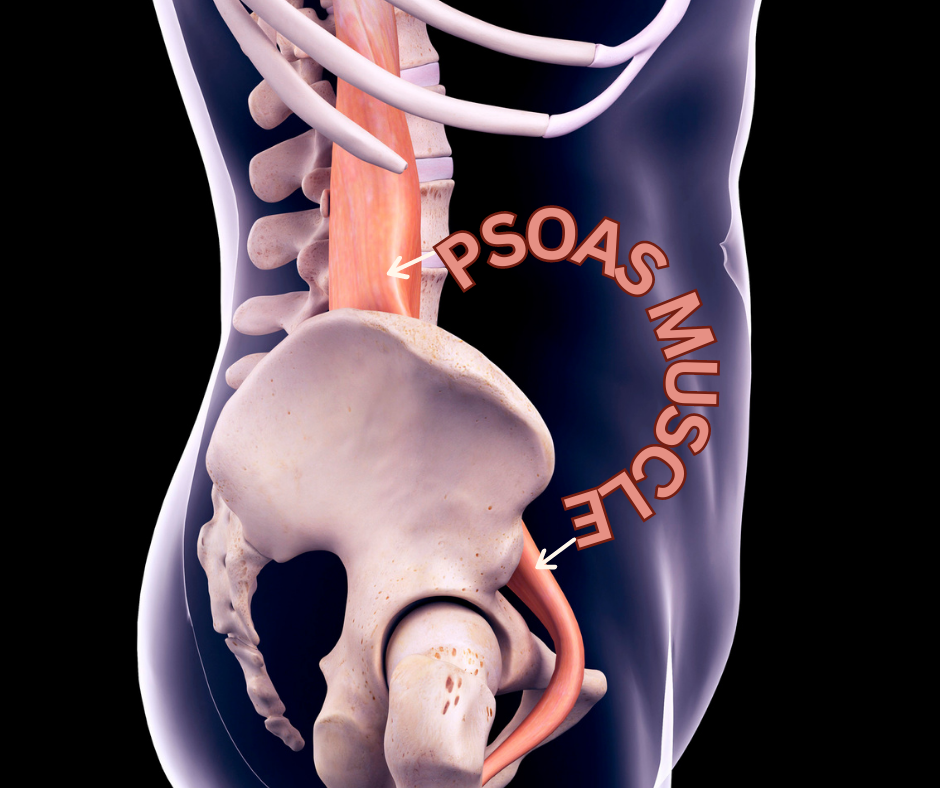Magnesium red blood count low means the client has a magnesium deficiency. Magnesium deficiency is one of the symptoms I see a lot in my clinic, when questioned on whether they have had a blood test for magnesium more times than not the reply is yes & it was normal. I then suggest they go back to the doctor & get another pathology test, this time to check the magnesium RBC. More times than not it shows up as a magnesium low red cell count, meaning the client is magnesium deficient.
- Magnesium red blood count low does not show up on a routine blood test because only a small amount of magnesium is present in the blood plasma at any given time.
- Magnesium is a cofactor in more than 300 enzyme systems that regulate diverse biochemical reactions in the body, including protein synthesis, muscle and nerve function, blood glucose control, and blood pressure regulation.
- Magnesium is required for energy production, oxidative phosphorylation, and glycolysis. It contributes to the structural development of bone and is required for the synthesis of DNA, RNA, and the antioxidant glutathione.
- Magnesium also plays a role in the active transport of calcium and potassium ions across cell membranes, a process that is important to nerve impulse conduction, muscle contraction, and normal heart rhythm.
Magnesium in the body is stored in:
- The bones
- Soft tissue
- Only a small fraction of it is found in the blood
As a result, measuring magnesium levels in the blood plasma does not necessarily provide an accurate picture of the body’s overall magnesium status.
Magnesium red blood count (RBC) normal range – levels ranges between 4.2 to 6.8 mg/dL. However, some experts recommend aiming for a minimum level of 6.0 mg/dL on the RBC test.
A red blood count (RBC) magnesium test:
- Is used to measure the levels of magnesium in your body’s red blood cells (erythrocyte). This test may be useful in detecting a deficiency of magnesium, which plays an important role in the proper functioning of the body’s nerves, muscles, and heart. Magnesium vs magnesium RBC test
- The magnesium RBC test is preferred over other types of tests because it provides a more accurate measurement of the body’s magnesium status over time. Magnesium in the blood plasma can fluctuate rapidly, whereas magnesium in the red blood cells tends to reflect a more stable level.
- On the other hand, the red blood cell (RBC) magnesium test measures the amount of magnesium present in the red blood cells, which tend to reflect a more stable level of magnesium over time.
- Red blood cells contain about 20 times more magnesium than blood plasma, so testing the levels of magnesium in the red blood cells is considered a more accurate way to assess magnesium status over the long term. https://healthmatters.io/understand-blood-test-results/magnesium-rbc

Causes for low red blood count levels of magnesium:
- Poor diet – One of the most common causes of magnesium deficiency is a diet that is low in magnesium-rich foods such as leafy greens, nuts, seeds, and whole grains.
- Digestive disorders – Gastrointestinal disorders such as Crohn’s disease, celiac disease, and irritable bowel syndrome can interfere with the absorption of magnesium. https://www.nutritionalhealthenterprises.com/nutrition-and-the-digestive-tract/
- Kidney disease
- Alcoholism – Chronic alcoholism can interfere with the body’s ability to absorb and retain magnesium.
- Certain medications – Certain medications such as diuretics, antibiotics, and proton pump inhibitors (PPIs) can interfere with the body’s absorption of magnesium.
- Older adults – As we age, our bodies may become less efficient at absorbing and retaining magnesium, leading to a higher risk of deficiency.
- Type 2 diabetes
- Women who are pregnant or breastfeeding
- Athletes & individuals who engage in strenuous physical activity.
- Malnutrition – Starvation, anorexia bulimia, or frequent vomiting for any reason can result in a magnesium deficiency.
- Diarrhea
- Crohn’s disease https://www.nutritionalhealthenterprises.com/gluten-intolerance-support/
Symptoms of magnesium RBC low:
- Muscle weakness
- Cramps
- Tremor
- Irregular heartbeat
- Fatigue
- Restless leg syndrome
- Insomnia
- Anxiety and depression
- High blood pressure
- Irregular heartbeat
- Migraines and headaches
- Digestive issues such as constipation
- Migraine headaches
Severe symptoms are:
- Convulsions
- Seizures
- Abnormal heart rhythms
- Hypertension
- Cardiovascular disease
- Type 2 diabetes
- Osteoporosis
Percentage of People Suffering from a Magnesium low red cell count:
According to the National Institutes of Health (NIH), an estimated 50% of Americans do not consume the recommended daily amount of magnesium.
Treatment for low Magnesium RBC
Best way how to increase RBC magnesium in your body.
- Magnesium supplements
- Changes in diet. https://www.nutritionalhealthenterprises.com/why-magnesium-is-important-for-your-health/
- Lifestyle changes
- Foods high in magnesium – avocado, nuts, legumes, tofu, seeds, whole grains & fatty fish https://www.nutritionalhealthenterprises.com/healthy-eating-guide-vegetables/
Most people get all the magnesium they need from food. As a general rule, foods that are high in fibre provide magnesium. Some good sources of magnesium include leafy green vegetables, such as spinach, kale, rocket, chard & lettuce.
Table 1: Recommended Dietary Allowances (RDAs) for Magnesium
Age Male Female Pregnancy Lactation
Birth to 6 months 30 mg 30 mg
7–12 months 75 mg 75 mg
1–3 years 80 mg 80 mg
4–8 years 130 mg 130 mg
9–13 years. 240 mg 240 mg
14–18 years 410 mg. 360 mg 400 mg 360 mg
19–30 years. 400 mg 310 mg 350 mg 310 mg
31–50 years 420 mg 320 mg 360 mg 320 mg
51+ years 420 mg 320 mg
Your healthcare provider can help interpret the results of the RBC magnesium test to determine if you have a magnesium deficiency and develop a treatment plan for a high magnesium, RBC if necessary.
Magnesium Red Blood Count Low:
In summary when magnesium levels in the body are low, the body will try to maintain normal levels by pulling magnesium from the bones or other tissues. This can lead to an eventual depletion of magnesium stores, which may be detected by the RBC magnesium test before it is apparent on a routine blood test.
Is RBC magnesium test accurate? the answer is yes therefore, if you suspect that you have a magnesium deficiency, it may be worth asking your healthcare provider about getting an RBC magnesium test to get a more accurate assessment of your magnesium levels. Magnesium is an essential mineral that plays a crucial role in the proper functioning of the body’s nerves, muscles & heart.
Sometimes it is hard to know how to make the necessary changes your body needs to feel healthier for more information ring me on 07-55720388
Disclaimer:
All content & media on the Natural Therapy Clinic is created & published online for informational purposes only.











